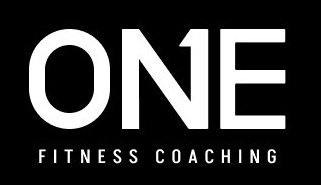Do I Have Low Testosterone
Title: Understanding the Effects of Low Testosterone in Men: Unveiling the Silent Struggle
Introduction
Testosterone is a vital hormone that plays a crucial role in the development and maintenance of male characteristics. It influences various aspects of a man's health, including sexual function, muscle mass, bone density, mood, and energy levels. However, as men age, testosterone levels naturally decline, which can lead to a condition known as low testosterone or hypogonadism. In this blog, we will delve into the effects of low testosterone in men and shed light on the physical, emotional, and psychological challenges associated with this condition.
1. Physical Symptoms
a) Decreased Libido: One of the primary effects of low testosterone is a diminished sex drive. Men may experience a decrease in sexual desire and find it more difficult to achieve and maintain erections.
b) Fatigue and Reduced Energy Levels: Low testosterone can result in persistent fatigue and decreased energy levels. Men may find themselves feeling tired and lacking the stamina they once had.
c) Loss of Muscle Mass and Strength: Testosterone is crucial for maintaining muscle mass and strength. With low levels of this hormone, men may notice a gradual decline in muscle tone and strength, which can impact physical performance and overall body composition.
d) Increased Body Fat: Inadequate testosterone levels can contribute to an increase in body fat, particularly in the abdominal area. This can lead to weight gain and a higher risk of developing conditions like obesity and metabolic syndrome.
e) Decreased Bone Density: Testosterone helps maintain bone density in men. Low levels of testosterone can increase the risk of osteoporosis and fractures.
2. Emotional and Psychological Effects
a) Mood Changes: Low testosterone levels can affect a man's mood, leading to irritability, depression, and decreased motivation. Men may find themselves experiencing more frequent mood swings and feeling down without an apparent cause.
b) Cognitive Difficulties: Some studies suggest a link between low testosterone and cognitive decline, including problems with memory, concentration, and overall cognitive function.
c) Reduced Confidence and Self-Esteem: As the physical and emotional symptoms of low testosterone start to take a toll, men may experience a decline in confidence and self-esteem. This can affect their personal relationships, professional life, and overall sense of well-being.
3. Sexual and Reproductive Impact
a) Erectile Dysfunction: Low testosterone can contribute to difficulties achieving or maintaining erections, leading to erectile dysfunction. It can significantly affect a man's sexual performance and satisfaction.
b) Infertility: Testosterone plays a role in sperm production. Low levels of this hormone can decrease sperm count, motility, and quality, potentially resulting in infertility.
Conclusion
Low testosterone can have a profound impact on a man's physical health, emotional well-being, and overall quality of life. Recognising the symptoms and seeking medical advice is crucial for proper diagnosis and management. With the right interventions, men can work towards improving their overall well-being. Lifestyle adjustments, such as regular exercise, a balanced diet, stress reduction techniques, and sufficient sleep, can have a positive impact on testosterone production. Additionally, maintaining open communication with healthcare professionals can ensure appropriate care and support throughout the journey of managing low testosterone. Remember, addressing low testosterone is not just about physical health but also about nurturing a positive mindset and embracing a fulfilling life.
